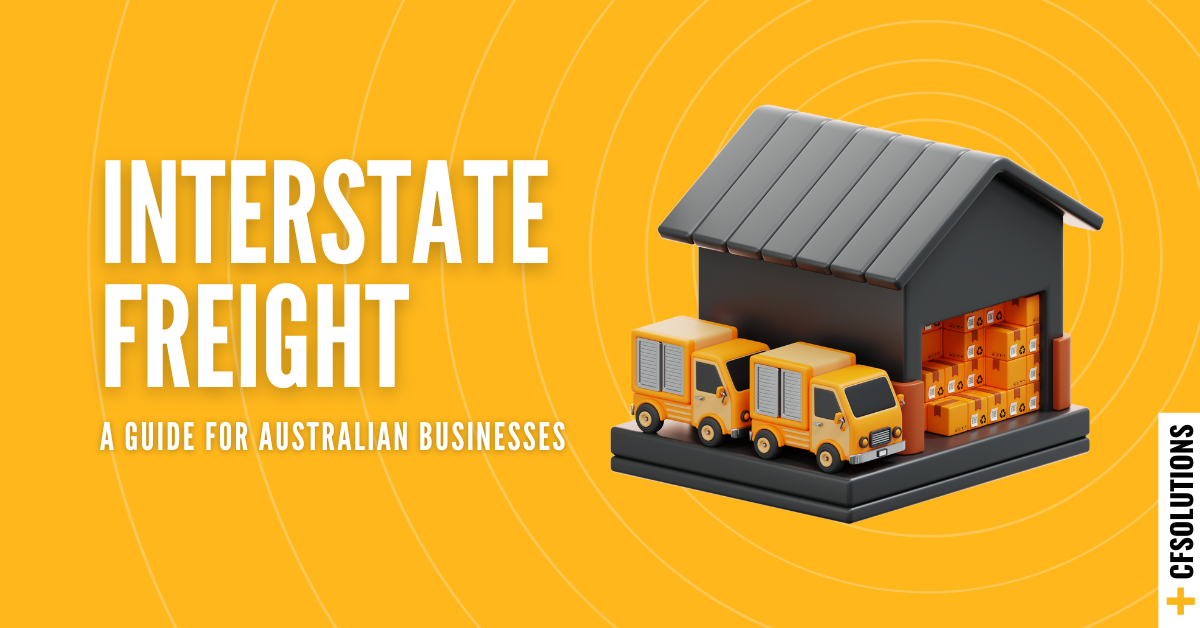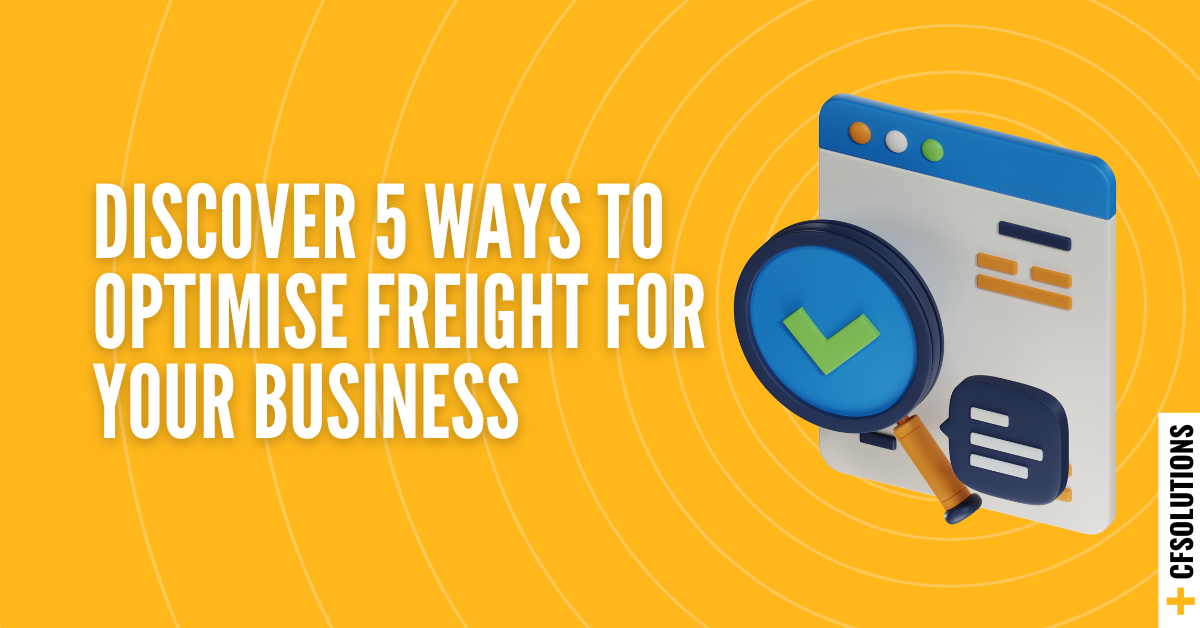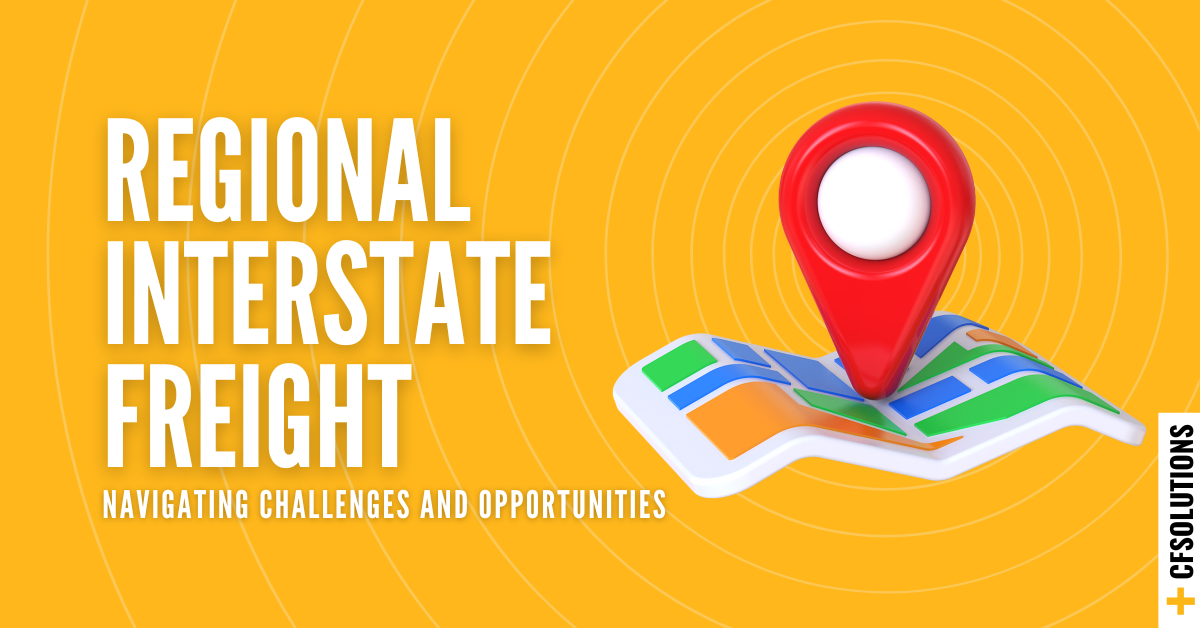
Interstate freight is the backbone of Australia’s logistics network, connecting businesses with customers and suppliers across the country. Whether you're shipping large volumes of goods or managing time-sensitive deliveries, understanding the key elements of interstate freight can streamline your operations and save costs. This guide covers everything you need to know about interstate freight, including transport modes, cost considerations, and how to select the best provider for your needs.
What is Interstate Freight?
Interstate freight refers to the transport of goods across states within Australia. This service is essential for businesses looking to expand their reach and operate nationally, enabling products to move efficiently from one state to another. Interstate freight differs from local or intrastate services, as it often involves navigating multiple state regulations, longer distances, and more complex logistics coordination.
Types of Interstate Freight Services:
Depending on the type and urgency of your shipment, there are several options for interstate freight:
-
Road Freight Australia: Ideal for large, non-urgent shipments. It offers cost-effective solutions for businesses that need to transport goods across the country, particularly when shipping by truck or multi-stop delivery routes.
-
Air Freight Australia: For time-sensitive or high-priority deliveries, air freight is the fastest option. While it’s more expensive, it ensures goods arrive quickly and is suitable for smaller, valuable, or perishable items.
-
Rail Freight Australia: This is an efficient option for moving bulk goods over long distances, particularly in industries like agriculture or mining. Rail freight is often used in combination with road transport for the final leg of delivery.
-
Sea Freight Australia: Although slower, sea freight is a viable solution for shipping large volumes of goods between coastal states or across long distances. It is best suited for oversized items or bulk shipments that do not require urgent delivery.
-
Courier Services Australia: For smaller packages or urgent deliveries, interstate courier services provide next-day or even same-day delivery options, especially when you need to send parcels between major cities.
Cost Factors for Interstate Freight:
The cost of interstate freight can vary significantly based on several factors:
-
Distance: Shipping goods across greater distances, especially to remote locations, typically incurs higher costs.
-
Type of Freight: Whether you’re transporting heavy machinery, pallets of goods, or small packages, the type and volume of your freight will influence pricing. Fragile, oversized, or dangerous goods usually require special handling, which increases costs.
-
Additional Services: Certain services such as tailgate assistance, manual handling, or temperature control may add to your overall freight costs. Fuel surcharges will also be considered in the final price.
-
Freight Mode: Air and express services come at a premium compared to general road or sea transport, so it's essential to choose the right mode for your delivery needs to balance speed and cost.
Choosing the Right Interstate Freight Provider:
Selecting the right freight provider is crucial for smooth operations. Here’s what to consider:
-
Service Range: Look for a provider that can cover both urban and remote locations across multiple states. A flexible provider will have the infrastructure and reach to manage different routes and delivery considerations.
-
Reputation and Reliability: Choose a provider with a strong reputation for timely deliveries and consistent service. It’s essential to partner with a carrier that meets your service quality expectations.
-
Customisation Options: Freight needs vary from business to business, so it’s important to work with a provider that can offer customised services. Whether it’s handling specialised goods or offering flexible pick up or delivery schedules, tailor-made solutions make a difference.
-
Technology Integration: A good provider should offer modern technology for tracking shipments, managing bookings, and providing real-time updates. This ensures visibility throughout the freight journey and allows for more efficient coordination.
- Customer Support and Expertise: Having access to a knowledgeable and responsive team is crucial. A good provider should offer dedicated points of contact who can assist with out-of-the-box support or unexpected challenges. Whether it's handling urgent requests, troubleshooting complex issues, or providing expert advice on optimising your logistics, a reliable customer service team ensures that your freight operations run smoothly.
Benefits of a Multi-Carrier Solution for Interstate Freight:
Working with a multi-carrier solution offers several advantages:
-
Cost Optimisation: Using multiple carriers allows you to choose the most cost-effective option for each shipment, avoiding overpaying for services that don’t align with your specific needs.
-
Flexibility: With multiple carrier options, businesses can handle diverse freight needs—from small, urgent deliveries to large, bulk shipments—without relying on a single provider’s limitations.
-
Scalability: As your business grows, a multi-carrier solution can scale with you, ensuring your logistics operations remain efficient and cost-effective, no matter how complex your shipping requirements become.
Optimising Your Interstate Freight Strategy:
Here are some tips to improve your interstate freight operations:
- Maintain Carrier and Route Redundancy: Building flexibility into your freight strategy by having alternative carriers and routes available can safeguard your business from disruptions. This ensures continuity in case of delays or unforeseen obstacles, keeping your deliveries on schedule.
- Dedicated Support and Expertise:
Having a dedicated point of contact provides quick access to assistance and guidance when needed. Expert advice can help navigate complex logistics challenges and ensure your freight strategy remains aligned with business objectives. - Prioritise Urgent Freight Needs:
For time-sensitive shipments, having access to expedited services ensures your goods reach their destination quickly. Specialised freight solutions can accommodate urgent or high-value deliveries without compromising reliability. - Consolidate Shipments: Where possible, combining smaller shipments into larger loads can reduce freight costs and improve efficiency. This approach also helps streamline delivery times by making the most of available capacity.
- Utilise Real-Time Tracking and Freight Management Tools: Leverage modern technology to monitor shipments in real-time, allowing you to proactively manage delays or issues. Integrated systems help with managing bookings, tracking deliveries, and optimising routes for better coordination and transparency throughout the freight journey.
- Regularly Review Freight Options: Assessing your mix of freight services ensures you're not overpaying or underutilising particular modes of transport. This ongoing evaluation allows you to choose the most efficient solution based on your current shipping needs, balancing cost with service quality.
- Monitor and Adjust for Continuous Improvement:
Regular performance reviews of your freight operations allow you to identify areas for improvement. By tracking key metrics such as delivery times and cost management, you can fine-tune your strategy to maintain efficiency and meet evolving business needs.
Interstate freight is a vital service for Australian businesses, connecting markets and customers across vast distances. By understanding the different freight options available and selecting the right provider, businesses can ensure their goods are delivered efficiently and cost-effectively. Whether you need quick deliveries or economical transport solutions, optimising your freight strategy is key to keeping your supply chain running smoothly.
Learn more about Interstate Transport here
Subscribe to our Newsletter or Follow Our Socials
Related Posts
- by Customised Freight Solutions
- 0 Comments
Discover 5 Ways to Optimise Freight for Your Business
In today’s competitive market, efficient freight management can make ...
Read More- by Customised Freight Solutions
- 0 Comments
Regional Freight: Navigating Challenges and Opportunities
Australia’s vast landscape presents unique challenges when it comes ...
Read More- by Customised Freight Solutions
- 0 Comments
Interstate Freight: A Guide for Australian Businesses
Interstate freight is the backbone of Australia’s logistics network, ...
Read More


